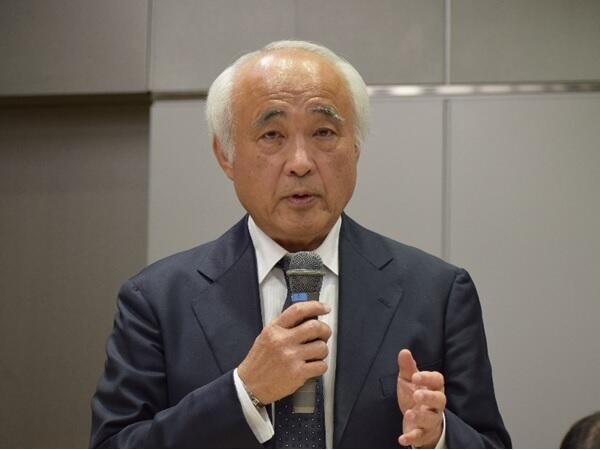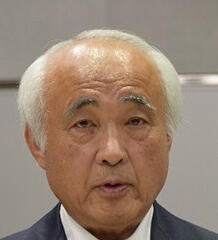Creating a venture development environment tailored for Japan is important and should take precedence over dreaming of a Silicon Valley or Kendall Square equivalent. The Science News interviewed Kiichi Kubota, the president of KSP, Inc. and founder of PeptiDream Inc., a unicorn company launched by the University of Tokyo. He is also the chairman of the Governing Board of the Japan Science and Technology Agency (JST) university-based new industry creation fund project. In the future, the project will be used to build a Japanese-style innovation ecosystem.
A significant difference exists in the number of unicorn companies (founded within 10 years and with a market capitalization of one billion dollars or more) in the United States (534) versus the number in Japan (5). While the difference in the number of registered university patents is not too great, with 7,781 in the United States compared to 4,904 in Japan, Japan lags far behind in terms of its licensing revenue of 4.4 billion yen, which is less than 1% of the revenue in the United States (the equivalent of 920.4 billion yen).

What is the cause of this difference? Kubota pointed to problems with people, goods, and money in nurturing deep tech ventures.
Regarding people, he said, "There is a shortage of human resources (CxOs) who can conceive business ideas and start a business. For example, when looking at CEOs; unlike managers in large companies, venture business managers need to be accustomed to on-the-job training in the field; otherwise, venture leaders will not grow. Such an environment is not provided."
As for goods (intellectual property), Kubota stated, "Just filing patents is not intellectual property. Intellectual property is how patents can be used as strategies."
In terms of money, he commented, "In recent years, the amount of public funds invested into venture businesses has been increasing, and although this is comparable to the United States, the problem is a lack of usability."
Two projects will be implemented with the 98.8 billion yen allocated to the university-based new industry creation fund in the second supplementary budget for FY2023. One is the startup ecosystem co-creation program (STAECO), which serves to establish bases throughout Japan to foster start-ups, and the other is creation support for deep tech start-ups (D-Global), which provides support to deep tech ventures aiming for the global market.
On January 12, 2024, nine platforms were adopted for STAECO. These include seven hub city platforms (PFs) in Hokkaido, Tohoku, Kanto, Chubu, Kansai, Chugoku, and Kyushu, and two regional PFs in Hokuriku and Shinshu. Masahito Moriyama, Minister of Education, Culture, Sports, Science and Technology, said, "We will work closely with the relevant ministries and agencies to promote the project to enable university start-ups to achieve economic growth and solve social issues, leading to further investment in universities and other institutions."
Each PF will proceed with such activities as operating and implementing gap fund programs, enhancing such functions as securing and training management candidates and commercialization support personnel, strengthening functions for project discovery (including collaborating with base projects of each ministry), and building and reinforcing networks with overseas start-up ecosystems. Researchers, graduate students, and others who aim to start their own businesses are eligible to apply for the fund while receiving support from the respective PFs. Before the proof-of-concept phase, they will receive support of up to approximately 5 million yen in principle for approximately one year, and after the proof-of-concept phase, up to approximately 60 million yen in principle for a maximum of approximately three years.
On the other hand, D-Global sets commercialization and R&D milestones for global market expansion and promotes the necessary initiatives to achieve them.
Both the commercialization promotion organization and principal investigator must apply jointly, but if accepted, they will receive support for up to 500 million yen for a maximum of three years. The application period for this fiscal year has already closed, and research activities are expected to begin in late April; however, another call for applications will be announced for the next fiscal year.
The most significant point of this support scheme is that each research project can receive support for the first year after the venture is established. Kubota said, "The support provided by JST and the Ministry of Education, Culture, Sports, Science and Technology has been limited only until the venture was established, and once established, it was necessary to seek other support, such as New Energy and Industrial Technology Development Organization (NEDO), Japan Agency for Medical Research and Development (AMED), Venture Capital (VC), etc. By bridging that gap, we can provide smooth and seamless support to the next phase."
Furthermore, the usability of the assets has significantly improved through the leveraging of the fund. Kubota explained, "When PeptiDream was founded, we did not receive any government support because the usability of government funds was not good, but if this system had been available at that time, we would have applied for it." Improvements have also been made, such as allowing patent filing fees to be paid directly out of expenses, and significantly relaxing requirements.
He summarized by saying, "The world's start-up trends are rapidly changing. GAFA was born out of the IT era, and within 10 years, AI has emerged. Five years later, ChatGPT has become a business. In two years, we will see new business models emerge. The speed of technology and business is accelerating, and unless Japan catches up or overtakes in some way in the next five years, I have a sense of crisis that no more ventures will emerge from this country. The important thing is not to simply imitate the United States. Thousands of Japanese have seen Silicon Valley and Boston's Kendall Square, but Japan has not been able to keep pace with them. This is mainly because the basic identity is different. We should build a system that suits Japan, and I would like to contribute to the creation of such an environment through this project."

Profile
Kiichi Kubota
Born in Tokyo in 1953. He graduated from Waseda University. After working for Nissan Motor Co., Ltd., and Special Reference Laboratories, Inc. (current SRL, Inc.), in 2000, he became a senior managing director of Japan Genome Solutions (JGS) Inc., a venture company developing DNA chips.
In 2001, he became the company's president. JGS Inc. was awarded the Minister of Education, Culture, Sports, Science and Technology Prize; however, the company disbanded in 2005. In the same year, Kubota met Professor Hiroaki Suga of the University of Tokyo and worked on the commercialization of artificial RNA catalysts. He established PeptiDream Inc. in 2006 and became its CEO. In 2017, he became the chairman of PeptiDream Inc.; he retired in 2021. Since June 2021, he has been the president of KSP, Inc.
This article has been translated by JST with permission from The Science News Ltd. (https://sci-news.co.jp/). Unauthorized reproduction of the article and photographs is prohibited.




